Alberta
“Back in the saddle” Poilievre’s words after winning the Battle River-Crowfoot byelection
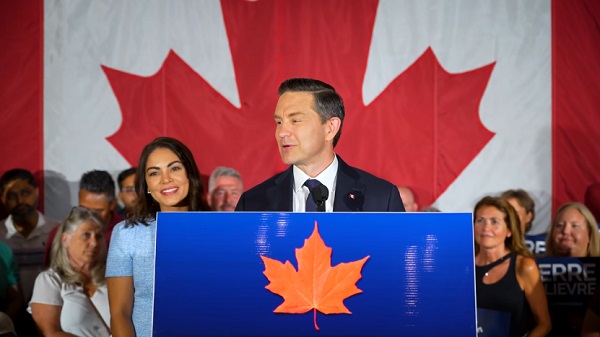
News release from the Leader of the Opposition
Thank you very much to the great people of Battle River- Crowfoot. If I stand before you here today, it is by the grace of God and the good generosity of so many people. The first of which I must start with is my incredible wife, Ana. Ana, you have been an incredible rock for our family. You’ve been the glue that has bound us all together.
And to my kids, Valentina and Cruz. My kids have been incredibly patient and understanding as dad has been on the road a tremendous amount over a long period of time. Especially little Valentina, I haven’t seen in a while, but I want them to know that we do this work for them and for all of Canada’s kids.
Thank you to the incredible Damien Kurek, whose gracious sacrifice has made this moment possible. He and Danielle have been filled with kindness and generosity to us.
The story that most captures the essence of the Kurek family happened at a tragic moment in their life. Last harvest, Damien lost his best friend and his father right in the middle of the harvest, and of course, this was a heartbreaking moment for him. He had spent his childhood basically being mentored by this gentleman who had taught him everything he knew.
But then he had to ask himself, how are we going to get the crop off 6,000 acres and the leader of all of this work was no longer with them. Suddenly, dozens of combines from across Battle River-Crowfoot appeared at the Kurek farm and scattered out into the fields and brought home the harvest. Without asking for anything in return, these incredible neighbors, friends and people perhaps they didn’t even know, showed up to give a helping hand.
This was bringing in the harvest in more than one way. For the Kurek family has planted the seeds of friendship across this region for over a hundred years. The seeds of those friendships came home in that beautiful harvest on that day. That epitomizes the great people of Battle River-Crowfoot for whom I am grateful that I will have the chance to be their humble servant.
To fight every day and in every way for the people in this region who feed, power and protect all of Canada. These are the farmers, the tradespeople, the soldiers, the prison guards, the entrepreneurs and so much more. Through drought and depression, through booms and busts, they’ve come through it all and they’ve never stopped.
But this incredible region and its amazing people have suffered terribly over the last 10 years. I have seen the main streets that have been hollowed out and the trades workers who are underemployed because there is just not the work as the federal government has attacked the oil and gas sector and favoured foreign producers.
This is the truth here in Battle River-Crowfoot and in many communities across this country. Over the last 10 years, Liberal policies have sent crime, immigration, housing costs, inflation spiralling out of control. Now, they promised recently that things would be different, but under Mr. Carney and his 157 days in office, they’ve only gotten worse.
There have been many announcements and meetings, many photo ops and a lot of jazz, but not a lot of results. He sent everyone home for a summer vacation. He sent them home even though the deficit is spiralling out of control, inflation is up, elbows are down, no resource projects are underway, and the housing crisis worsens as builders can’t afford to build and buyers can’t afford to buy.
That’s why us Conservatives have our work cut out for us. This fall, as Parliament returns, we will not only oppose out-of-control, Liberal inflation, crime, immigration, cost of living and housing prices. But we will propose real solutions for safe streets, secure borders, a stronger and sovereign country with bigger take-home pay for our people. We’ll put Canada first and we will do so in a way that will make our country self-reliant and make our people capable of earning paychecks that buy affordable food and homes in safe neighbourhoods.
We are going to be ready to work with any party to get these results. We need stronger take-home pay for our people in Battle River-Crowfoot, and across Canada, because people can’t afford to live. They tell me the same story everywhere I go: Canadians now spend 42 percent of their income on taxes, more than on food, clothing and shelter combined, and Mr. Carney’s deficits are actually bigger today than the ones that Justin Trudeau left behind.
More money for bureaucracy, consultants, foreign aid, corporate welfare, fraudulent refugees; less money in the pockets of the people who earned it. We will push to cut waste and cap spending so that we can bring down inflation, debt and taxes. We believe that Canadians deserve low taxes and bigger paychecks so that food and homes are not luxuries, but once again, the things that people can take for granted. You work hard for your money. It’s time that your money started working hard for you.
Transportation is one of the biggest costs to get around in this country. It’s a big country, a cold country. How many came here in their electric car today? Not many. Anybody driving from Provost or Oyen in your electric vehicle? And yet, in six months, Mr. Carney expects to have an electric vehicle mandate imposed with $20,000 per vehicle taxes applying to any vehicle above his mandated quota. This is a direct attack on rural life and on the cost of living in Canada. It will wipe out our auto sector.
It is not an exaggeration to say that the majority of communities in Battle River-Crowfoot, and across rural and remote Canada, would not exist if an electric vehicle mandate were in place. That is why Conservatives are going to mount a massive pressure campaign at dealerships, at auto plants, in communities across the country and on the floor of the House of Commons to stop the electric vehicle mandate and allow Canadians to buy the car or truck of their choice. You should be back in the driver’s seat.
We need safe streets again. Even in rural communities, where Kevin Sorenson tells me they used to leave the doors unlocked. Now people don’t feel so safe in rural communities. On farms, the thieves are showing up and siphoning gas and stealing copper. More dangerous and violent drug offences are happening everywhere.
Conservatives will push for laws that lock up violent offenders, ban drugs, treat addiction, and make our communities safe to raise families and for seniors to retire. We’ll also protect the lawful licensed, trained and tested firearms owners. Having a hunting rifle in rural communities is not just a matter of recreation; it is a way to feed your family.
We will secure our borders by putting an end to the Liberal open borders experiment of mass immigration, which has been a disaster. Over the next several years, we need to have more people leaving than coming so that citizens in Canada can afford homes, can find jobs and healthcare again. Conservatives welcome lawful, orderly immigration, but it has to be done in our national interests, with the right people and in the right numbers. In other words, we will fight to restore an immigration system that puts Canada first.
Most of all, we need to restore the sovereignty of our country. Our nation has become far too dependent on one export market, and increasingly, the Liberals are losing two trade wars: one with China and one with the US. Since Mr. Carney took office, $60 billion of net investment has fled the country to escape high Liberal taxes and brutal anti-development policies. This has weakened our economy and our negotiating position against other countries that want to take advantage of us. Those investors are taking their money to other places that have lower taxes and more favourable treatment. Meanwhile, US and Chinese tariffs have actually worsened since Mr. Carney got elected. That was the election that he ran on getting a better deal.
Conservatives will fight to put Canada first and we will work with anyone from any party. We continue to extend our hand to Mr. Carney and say that we want to work with any party to put an end to the tariffs and get a fair deal for Canada. In fact, we are proposing solutions. Nonpartisan solutions that will help strengthen Canada’s hand. For example, we propose a Canadian Sovereignty Act to take back control of our economic destiny.
This act would legalize pipeline construction, rapid mine approvals, LNG plants, nuclear plants. It would get rid of the industrial carbon tax, the EV mandate. It would ensure that Alberta could continue increasing its output of oil and gas. It would pave the way to get pipelines built right across this country, and it would eliminate capital gains tax when you reinvest your profits here in Canada to bring back hundreds of billions of dollars in investment.
This is an idea I hope the Liberals will steal because our purpose is Canada. It’s a plan that will mean that we dig mines, lay pipe, open ports, unleash the might of our workers and the genius of our entrepreneurs in a bigger, more powerful, free enterprise economy that puts Canadians back in charge of their lives. These steps will save you money, restore safety in your streets, secure your borders and strengthen your nation’s sovereignty.
These are based on common sense. Getting back to basics, things I learned a lot about when I was travelling around the great communities of the region of Battle River-Crowfoot. And I have to say, some might’ve thought it was a burden for me to come right off the campaign trail in a national campaign and go straight to knocking on doors, to travelling throughout a region of 56,000 square kilometres. But I’ll tell you something, it was not a burden at all. This has been a privilege.
Getting to know the people in this region has been the privilege of my life. In fact, I’ve had a hell of a lot of fun. Whether it’s been at the Bronc matches or the rodeos or walking into a parking lot and some guy I don’t even know walks up and offers me a big bag of beef jerky. It doesn’t happen in the city. Or another guy says he’s got a four-wheeler and he tells me I can tear around town at it all by myself – he trusts the city boy to do that – I don’t know what he was thinking. But I really love the people of Battle River—Crowfoot. They’re the kind of ‘what you see is what you get’, give you the shirt off their back, tell it like it is, common sense people.
And they reinforced a lot of lessons that all of us in politics have to learn and relearn and relearn again: humility and hard work, loyalty and love. You see the people in these communities, they fight their own battles, but they’re always ready to stop and help a neighbour or a friend. They know how to stretch a dollar. And most of all, they know, in the words of the great Paul Harvey, how to bail together a family with the soft, strong bonds of sharing.
It reminded me of all of these things, and they also reminded me that the road to success is never a straight line. And most of all, you should never give up in hard times. That, whenever hardship strikes, you need to stand up and keep on going, and if you care about something, you don’t give up on it when things get difficult or you suffer a setback.
These stories that were on the faces of the people I met: the woman suffering from cancer who had just overcome days of radiation treatment, who showed up at my town hall in Stettler to tell me to keep going. I say to her, ‘you don’t give up, so I don’t give up.’
The waitress I met in the same town who told me she also works as a teacher and a ranch hand, but has no money left at the end of the month somehow having three jobs. Because she doesn’t give up, I won’t give up.
Or Patty, a female prison guard who works at the Drumheller penitentiary and who was tied up and viciously assaulted by a violent criminal, and told me that she wasn’t afraid because she was too busy thinking about the job that she had to do to protect her fellow prison guards. My message to her is, you don’t give up, so I don’t give up.
To Bill Bauer, who turned a hundred years old in Acme. He was born and raised in a sod hut in rural Saskatchewan and lived through the Dust Bowl and the depression, all to move to Alberta and start generation after generation of family here in this wonderful region. Because he doesn’t give up, I don’t give up.
To the great people of the special areas whose ancestors were told a century ago, including Damien’s great-grandparents, that they’d never be able to farm on that land – too tough and too dry. And yet on the homestead signs that you drive by on the highway, those old names are still there, and their great-great-grandchildren are still making those fields blossom. They never gave up, so I will never give up.
Because as my mother who’s here today taught me, when you get knocked down, you get up and you keep on going. If you believe in what you’re doing, you march forward. So I say to all of the people, not just in the great region of Battle River-Crowfoot, but right across this country, to anyone who has been knocked down but has got back up and kept on going, you haven’t given up, so I won’t give up.
Together, we will work together, we will fight together, we will sacrifice together to restore the opportunity that our grandparents left for us so that we can leave it for our grandchildren. So that we can once again restore a country that is strong, self-reliant and sovereign. That is the country we’re in this for. That is why we stay united. That is why we go forward. May God keep our land glorious and free. Thank you very much.
Alberta
READ IT HERE – Canada-Alberta Memorandum of Understanding – From the Prime Minister’s Office

Alberta
Falling resource revenue fuels Alberta government’s red ink
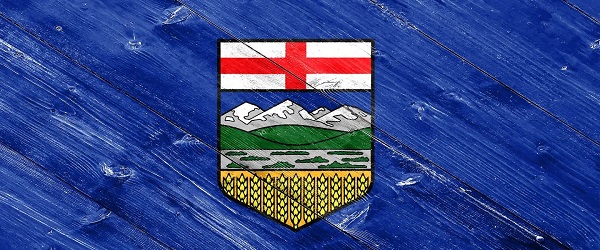
From the Fraser Institute
By Tegan Hill
According to this week’s fiscal update, amid falling oil prices, the Alberta government will run a projected $6.4 billion budget deficit in 2025/26—higher than the $5.2 billion deficit projected earlier this year and a massive swing from the $8.3 billion surplus recorded in 2024/25.
Overall, that’s a $14.8 billion deterioration in Alberta’s budgetary balance year over year. Resource revenue, including oil and gas royalties, comprises 44.5 per cent of that decline, falling by a projected $6.6 billion.
Albertans shouldn’t be surprised—the good times never last forever. It’s all part of the boom-and-bust cycle where the Alberta government enjoys budget surpluses when resource revenue is high, but inevitably falls back into deficits when resource revenue declines. Indeed, if resource revenue was at the same level as last year, Alberta’s budget would be balanced.
Instead, the Alberta government will return to a period of debt accumulation with projected net debt (total debt minus financial assets) reaching $42.0 billion this fiscal year. That comes with real costs for Albertans in the form of high debt interest payments ($3.0 billion) and potentially higher taxes in the future. That’s why Albertans need a new path forward. The key? Saving during good times to prepare for the bad.
The Smith government has made some strides in this direction by saving a share of budget surpluses, recorded over the last few years, in the Heritage Fund (Alberta’s long-term savings fund). But long-term savings is different than a designated rainy-day account to deal with short-term volatility.
Here’s how it’d work. The provincial government should determine a stable amount of resource revenue to be included in the budget annually. Any resource revenue above that amount would be automatically deposited in the rainy-day account to be withdrawn to support the budget (i.e. maintain that stable amount) in years when resource revenue falls below that set amount.
It wouldn’t be Alberta’s first rainy-day account. Back in 2003, the province established the Alberta Sustainability Fund (ASF), which was intended to operate this way. Unfortunately, it was based in statutory law, which meant the Alberta government could unilaterally change the rules governing the fund. Consequently, by 2007 nearly all resource revenue was used for annual spending. The rainy-day account was eventually drained and eliminated entirely in 2013. This time, the government should make the fund’s rules constitutional, which would make them much more difficult to change or ignore in the future.
According to this week’s fiscal update, the Alberta government’s resource revenue rollercoaster has turned from boom to bust. A rainy-day account would improve predictability and stability in the future by mitigating the impact of volatile resource revenue on the budget.
-

 Alberta2 hours ago
Alberta2 hours agoFrom Underdog to Top Broodmare
-

 Crime2 days ago
Crime2 days agoB.C.’s First Money-Laundering Sentence in a Decade Exposes Gaps in Global Hub for Chinese Drug Cash
-

 Crime2 days ago
Crime2 days agoFBI Seizes $13-Million Mercedes Unicorn From Ryan Wedding’s Narco Network
-
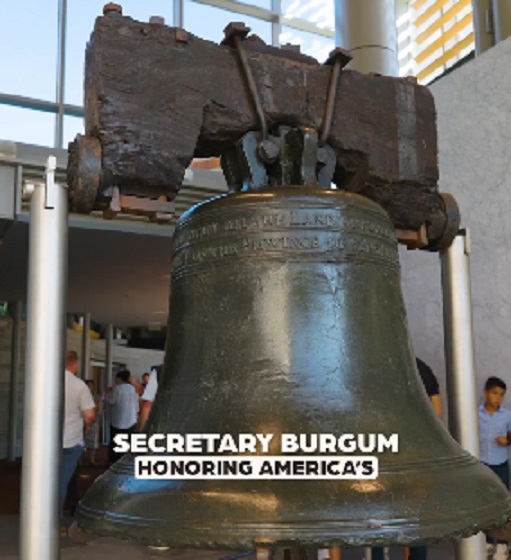
 International2 days ago
International2 days agoAmerica first at the national parks: Trump hits Canadians and other foreign visitors with $100 fee
-
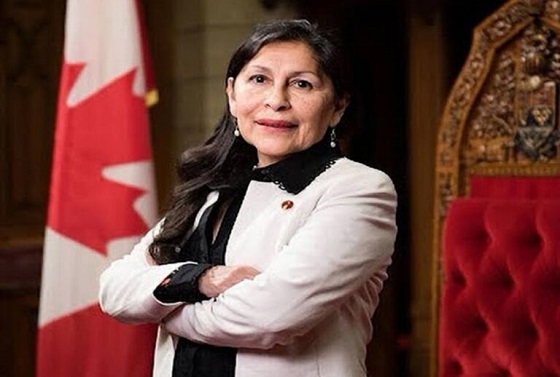
 Banks2 days ago
Banks2 days agoThe Bill Designed to Kill Canada’s Fossil Fuel Sector
-

 armed forces2 days ago
armed forces2 days ago2025 Federal Budget: Veterans Are Bleeding for This Budget
-
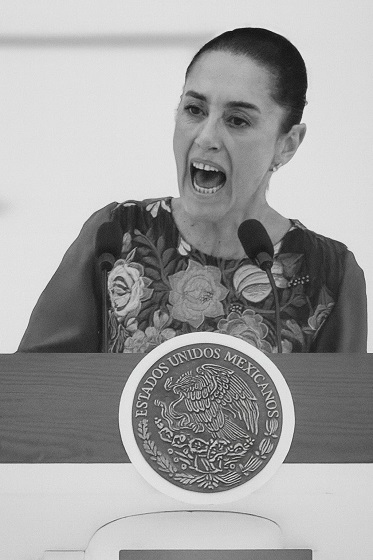
 Crime2 days ago
Crime2 days agoMexico’s Constitutional Crisis
-

 Alberta1 day ago
Alberta1 day agoAlberta and Ottawa ink landmark energy agreement







